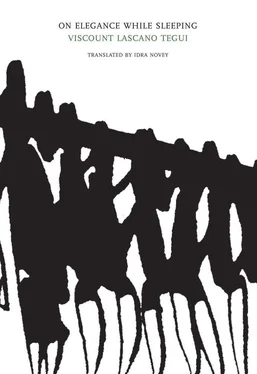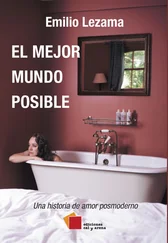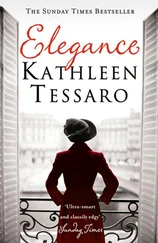I’d also like to avoid the mania of writing books to serve as funeral wreaths. I remember some grief-stricken parents who published a book about a daughter of theirs who’d died at the age of eighteen. Now, what could that poor anonymous girl have accomplished at such a young age to warrant such a tribute? Two photographs included in the text gave us the measure of this extinct creature. In one of them the girl is playing croquet. She’d played just once, in a hotel I used to frequent. Hardly a devotee!
The other photograph showed her on a horse. A few minutes after the picture was taken, the horse bucked the girl off and she broke her leg.
The seeming pedigree of such images made her parents forget the facts. Writers are the same.
They publish books for the pleasure of seeing them printed and bound, without remembering that the saddest aspects of their lives will end up contained in those pages.
But wouldn’t my book be the result of my desire to commit a crime, and thus be a part of it? Wouldn’t every page be a sliver of glass in the daily soup of my fellow citizens?
A book is the vegetal pulp left behind by man. And now, after countless centuries of digging up and studying palimpsests and engraved tablets, they’re saying that we should just allow all those dead, abandoned cities to become buried again beneath the windblown sediment…
A book is a slow, unavoidable catastrophe.
NOVEMBER 28, 18—
I’ve put my box of calomel aside and now sit, thinking. My eyes wander from the page of the daybook that the wind’s finger has just turned and from there to the valise sitting in the corner like it just got back from a trip. On a loose page, I’ve written: “The days go on…literature and fame both distress me. Neither of them deserves my faith. It’s been a long time since I’ve dreamed of an absolute repose. Death, perhaps. Art has poisoned existence. I’m discouraged. Trying to step beyond the commonplace, all I’ve accomplished is the loss of one of my legs. I should hate literature, feel disgust for it — no matter that it did me the meager favor of growing my wings…”
I could always forgive my mother having so many lovers singing her praises, but I have no patience for those harlots who spend their lives letting men talk them into sucking their marrow out, so to speak. And then, worse still, there are certain corrupt women who elevate this activity by putting molasses on their lover’s equipment, so as to make the experience sweeter. But even these women, beneath contempt, cannot compete with some of the more impressive sorts of degenerate — like, for instance, literature. Literature does far worse things than those poor whores who, out of hunger, have to turn tricks from street corner to street corner on the outskirts of town. Literature is invited into the family home as easily a maid — but soon is giving one breast to the son and the other to the father, kissing all the daughters with Sappho’s lips, and disheartening the mother by giving her The Little Flowers of St. Francis to read. Me she nursed and later delivered to glory. She was far worse than a whore — she didn’t even wash my private parts. Now I smell her perfume on every road. I’ve deposited all my assets into her account. I’m nothing when I’m far from her. What would I do if I couldn’t set eyes on her from time to time? My mouth is full of consonants. Why don’t I write verse? Because the grief of a poet is even greater than his work, and more worthy of praise. I write simply, never aiming for the start.
No, no verse! No music! Let us be just as we are: unfinished things without rhythm. Time has gnawed away our hope, and while the dampness inside us ate away at our hearts and livers, literary types entertained us by painting false exits…Others collected human vulgarities and sold them in pill-form…And others still assembled catalogs of souls and wrote informative introductions to accompany them. Nobody has ever honestly shown us, for instance, a man precisely as he was during his transition from the countryside to the city. Authors have merely “discovered” psychology and thus complicated our knowledge of life even further. A psychologist doesn’t understand people: he’s a businessman who sells carnival costumes. There are no costumes, however, for the soul. No, there’s nothing more there than its poor twisted simplicity, turned inside-out by a civilization still terrified of tigers — and hiding from them in cities.
There will come a day when no more poets will be born. The city, in our fearsome urbanized future, will impede their birth. And so, the government will keep the ones still made ill “by beauty and by the past” in gardens, like greenhouses, on the rooftops of skyscrapers, without demanding anything of them — much the way we now provide for the insane — leaving these geniuses free in their cages believing the lie that they might yet prettify the landscape of the apocalypse with their brilliance.
DECEMBER 3, 18—
Raimundo wrinkled the space between his brows and said: “I’ve wanted to write a book many times. It’s just that I’ve restrained myself. Since you’re so determined to ‘commit’ this crime without delay, why don’t you take advantage of this Don Juan story I’d have written in your place? So: Imagine that our Don Juan has a bigger supper than usual. He strokes a magnificent apricot in his palm for minutes at a time. The fruit’s aroma makes the old room smell like springtime.
“When at last he peels the fruit, he does so on a plate that doesn’t belong to his regular set of dishes. It slipped in among his regular china amid the forced intimacy experienced by delicate crockery and the clay pots all washed in the same kitchen sink. This piece is rose-colored porcelain, and one can read, in gold along its edge, the word ‘Memento.’
“Later Don Juan goes out to the street, a Sunday in a Catholic city. The women have separated from the men; the men have gathered in groups to watch the city girls strolling by in pairs. The conventions of this puritanical city make the women appear distant and discolored to Don Juan — the way landscapes look through the tiny window of a stagecoach: landscapes of second-hand clothes shops, old abandoned stage sets, the gray halls at the Opera House ball on Ash Wednesday…
“Among the passersby, our Don spots a young man of about sixteen. An ephebe embodying all the ideal lines and curves of the classical concept of beauty, synthesized in the angels of quattrocento painters . An ephebe who’s adopted a certain posture and yet seems possessed of a fragility — neither quality much in tune with this era. An ephebe who already feels — though still growing out the lower branches of his life — a desire for total revolution, real experience — the need to take hold of everything exceptional, a tendency toward a certain me déshabiller de la vie , as the poets say. Well, this ephebe now seems in a precarious sort of position, with Don Juan bearing down on him…
“Our Don feels an unknown pleasure seeing the beauty of this emissary. He follows the young man, straightening his tie as he goes, and starts a conversation with him. The ephebe does perceive his interlocutor, but does not react. Don Juan feels love, perhaps, for this lovely specimen of androgyny, who reminds him of an excessively beautiful woman, albeit without the same sense of being a living coat rack, which often distinguishes men from women…That is, a woman would have been better dressed.
“They get in a coach. As a coachman, I can’t conceive of a novel without a coach ride in it. Don Juan points out the starry night sky to the young man, speaking of its hypothetical cartography as though it were nothing more than another city neighborhood, not a distant, magnificent thing. The young man, feeling merely decorative inside the coach, responds by moving the slanted almonds of his eyes. His lips are two pale roses.
Читать дальше












